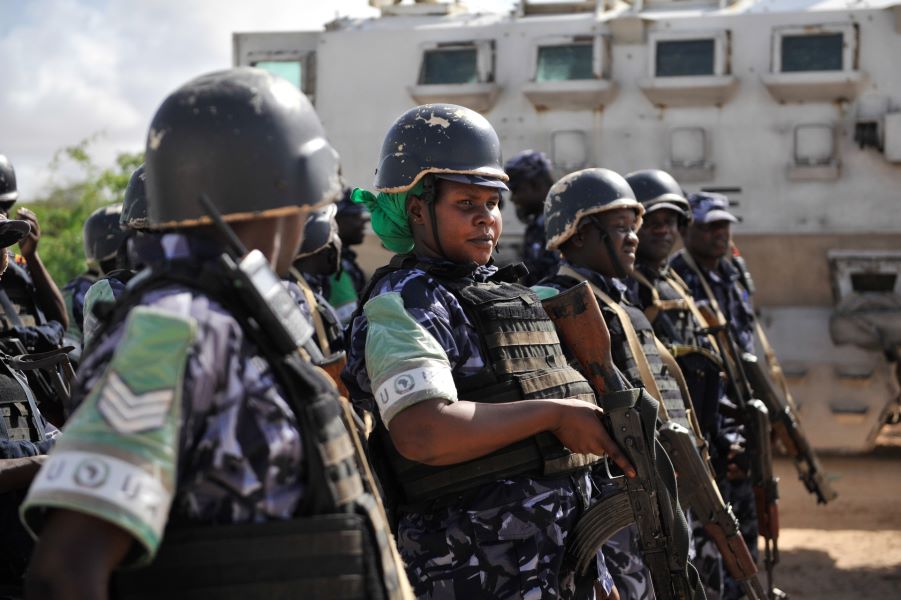By Albakae B Cisse
Following the expiration of Resolution 2640 (2022), which had conferred authority upon the United Nations Multidimensional Integrated Stabilization Mission in Mali (MINUSMA), a confluence of transitional authorities and select civil society organizations have united to vociferously advocate for the expeditious withdrawal of the aforementioned mission.
This clarion call was duly ratified by the United Nations Security Council on the day of Friday, 30th of June, 2023. The council’s resolution unequivocally mandates the culmination of this withdrawal by the denouement of the present year, December 31, 2023.
The genesis of the schism between the transitional administration and MINUSMA can be traced to the dissemination of the mission’s reports.
These reports have, on one hand, underscored the mounting resurgence of terrorist factions and, on the other, unveiled a compendium of investigations that have buttressed allegations of improprieties perpetrated by the Malian armed forces.
Foremost among these incriminations is the most recent exposé, pertinently addressing the tragic events in Moura – a geographical precinct hitherto dominated by the Katiba Macina jihadist faction.
The United Nations, in this context, has made the grave assertion that the national army summarily executed an alarming tally of 500 individuals in 2022.
These allegations, imbued with far-reaching ramifications, have elicited swift rejoinders and countercharges from the authorities, proffered through an official communiqué relayed via national broadcast and voiced by Colonel Abdoulaye Maiga.
The purport of these assertions from the transitional administration is a contention of a “military plot” engineered by the United Nations.
In the wake of these counterarguments, the echelons of authority have embarked upon a contentious inquiry into matters of espionage, invoking a claim that surreptitious satellite imagery was surreptitiously procured over the precinct of Moura sans requisite authorization.
Concomitant to this line of inquiry is the ostensible involvement of foreign contingents that contributed to the multilateral intervention, most notably the Russian paramilitary assemblage affiliated with the Wagner Group.
This allegation significantly diverges from the established trajectory of the transition, which has hitherto staunchly advocated for a meticulously orchestrated coterie of partners vested in Mali’s strategic trajectory.
This development, though, is not bereft of salient consequences for the national landscape. Over a decade of steadfast engagement, MINUSMA has cultivated a corpus of approximately 4,000 civilian personnel and has engendered the rejuvenation of more than a hundred public edifices, alongside the initiation of no fewer than a thousand expeditious impact initiatives.
As of the specified date, June 30, 2023, the personnel deployed within Mali’s borders encompass an assemblage of 11,676 military operatives, 1,588 law enforcement officers, and a contingent of 1,792 civilians – inclusive of 859 nationals and 754 internationals, further encompassing 179 United Nations Volunteers – the whole underscored by the sombre acknowledgement of 174 lives irrevocably lost.
The reverberations of this imminent withdrawal resonate widely within the nation, thus corroborated by a multiplicity of testimonies. As the principal custodian of the peace accord consummated in 2015 in Algiers, MINUSMA’s departure inexorably portends a potential encumbrance upon the practical realization and enduring adherence to the treaty’s stipulations, a pact concordantly endorsed by the signatory entities – the Coordinating Movements of Azawad (CMA) and the governmental apparatus of Mali.
Currently, these two protagonists are embroiled in a contentious discourse surrounding the draft constitution, a contentious terrain wherein former insurgent factions contend that the document egregiously disregards the salient tenets enshrined within the Algiers agreement.
This discordant posture poses the looming spectre of rekindling strife within the Kidal enclave, historically emblematic of Tuareg resistance, thereby further exacerbating vulnerabilities within the nation’s geographically isolated frontiers.
These regions, in the interim, have remained reliant upon the humanitarian sustenance proffered by the collaborative efforts of the United Nations mission and its multifarious partners.
“Mali, by its very nature, contends with an escalating scourge of youth unemployment, a lamentable trend that has been progressively assuaged by the manifold opportunities engendered through MINUSMA’s initiatives. The impending withdrawal’s ramifications are palpable – a stark elimination of gainful employment with profound repercussions vis-à-vis the economic landscape and the purchasing prowess of countless Malian compatriots,” laments Amar Ben, an affiliate of the Timbuktu-Taoudenit Youth Platform, which steadfastly advocates for the perpetuation of MINUSMA’s presence.
A confluence of regional consultancies and indigenous non-governmental organizations faces an irrevocable quagmire.
The impending cessation of partnerships integral to the mission-related projects portends an ineluctable unravelling of their operational fabric, subsequently engendering a lacerating disconnect from the sustentative contracts and subsidies that hitherto underpinned their continued viability.
The civilian cadres, meanwhile, are beleaguered by a prevailing sense of despondency. Boubacar Touré, a Security Agent stationed at the MINUSMA Timbuktu enclave, voices a sentiment of foreboding: “We shall be akin to those who were once affiliated with Barkhane – bereft of occupation and bereaved of support.”
Nevertheless, a poignant backdrop merits reflection. The pronouncement of Minister of Foreign Affairs, Abdoulaye Diop, addressing the council’s constituents, unequivocally acknowledges the exigencies of a realist perspective – one that appraises MINUSMA’s mandate as having regrettably faltered in squarely addressing the preeminent security exigencies.
This articulation finds resonance with a chorus of Malian citizenry harbouring aspirations of autonomous governance. Yet, pending the articulation of a substantive and cogent proposition from the authoritative echelons, capable of mitigating the prevailing apprehensions bedevilling the Malian populace, this decision remains both hailed by some and decried by others – emblematic of a nation oscillating between divergent impulses.
This article was first published in the French section. Translation by Daniel Okoth.



